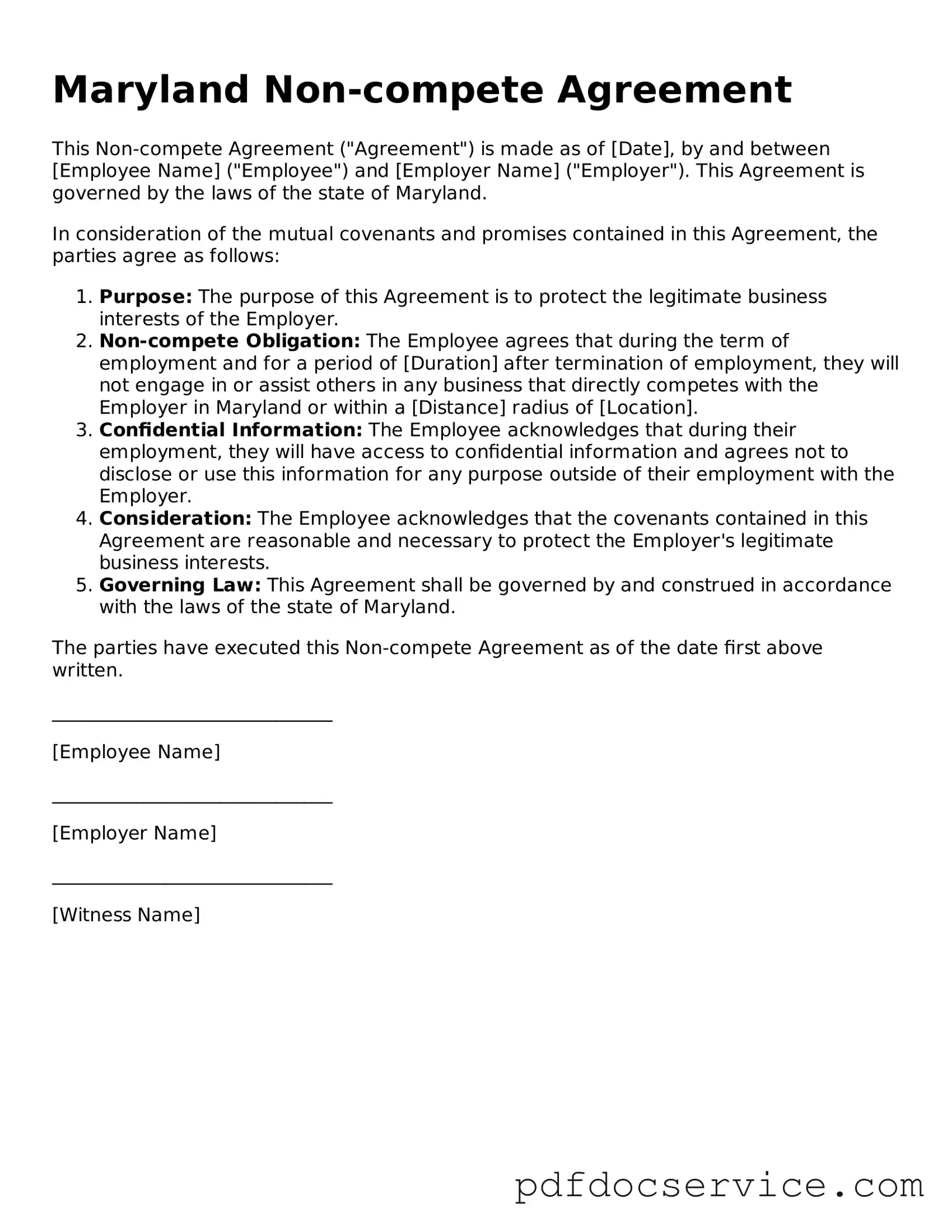Printable Non-compete Agreement Template for Maryland
A Maryland Non-compete Agreement form is a legal document that restricts an employee from working for competitors or starting a competing business for a specified time after leaving their job. This form aims to protect an employer's business interests by preventing the sharing of sensitive information and trade secrets. Understanding its terms is crucial for both employers and employees to ensure fair practices and compliance with state laws.
Open Non-compete Agreement Editor

Printable Non-compete Agreement Template for Maryland
Open Non-compete Agreement Editor

Open Non-compete Agreement Editor
or
Get Non-compete Agreement PDF
Finish the form now and be done
Finish Non-compete Agreement online using simple edit, save, and download steps.